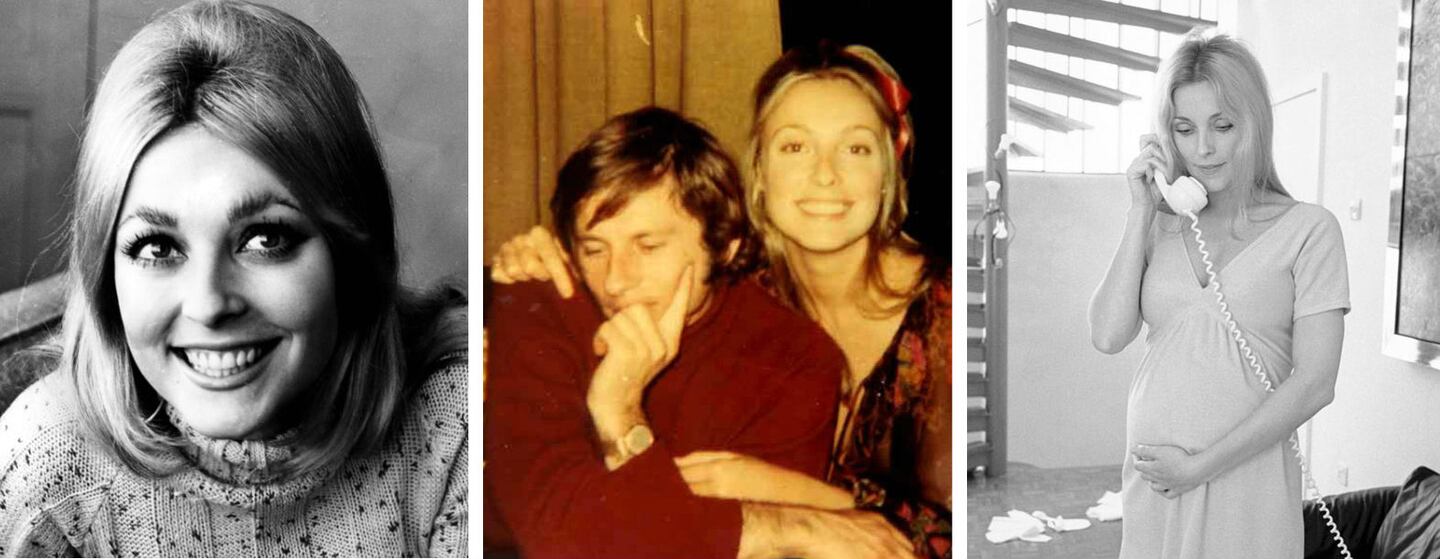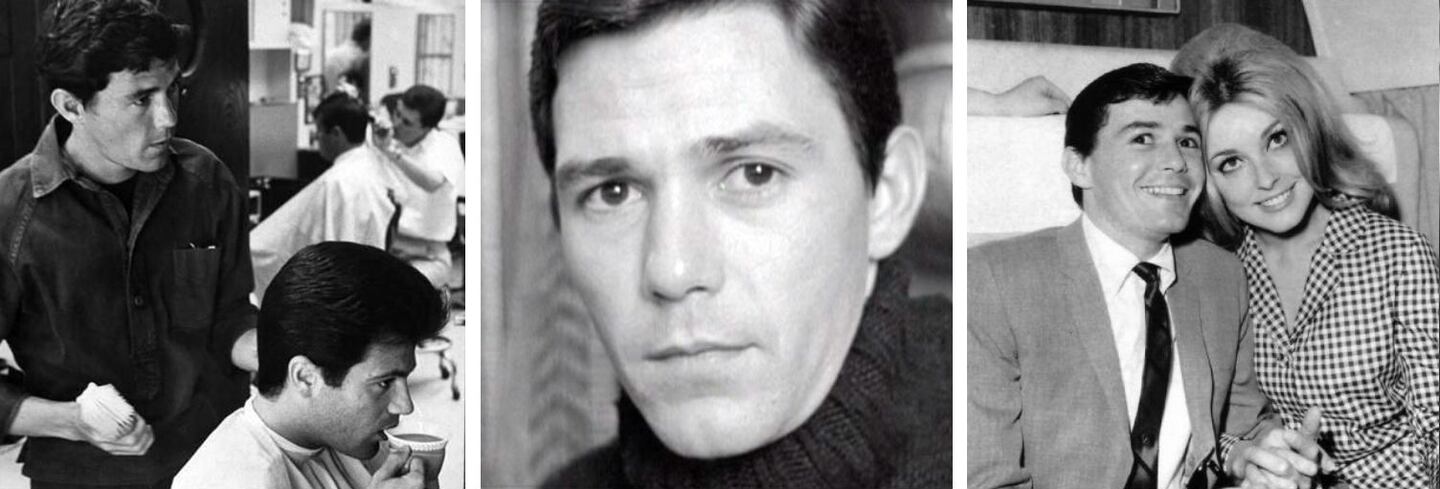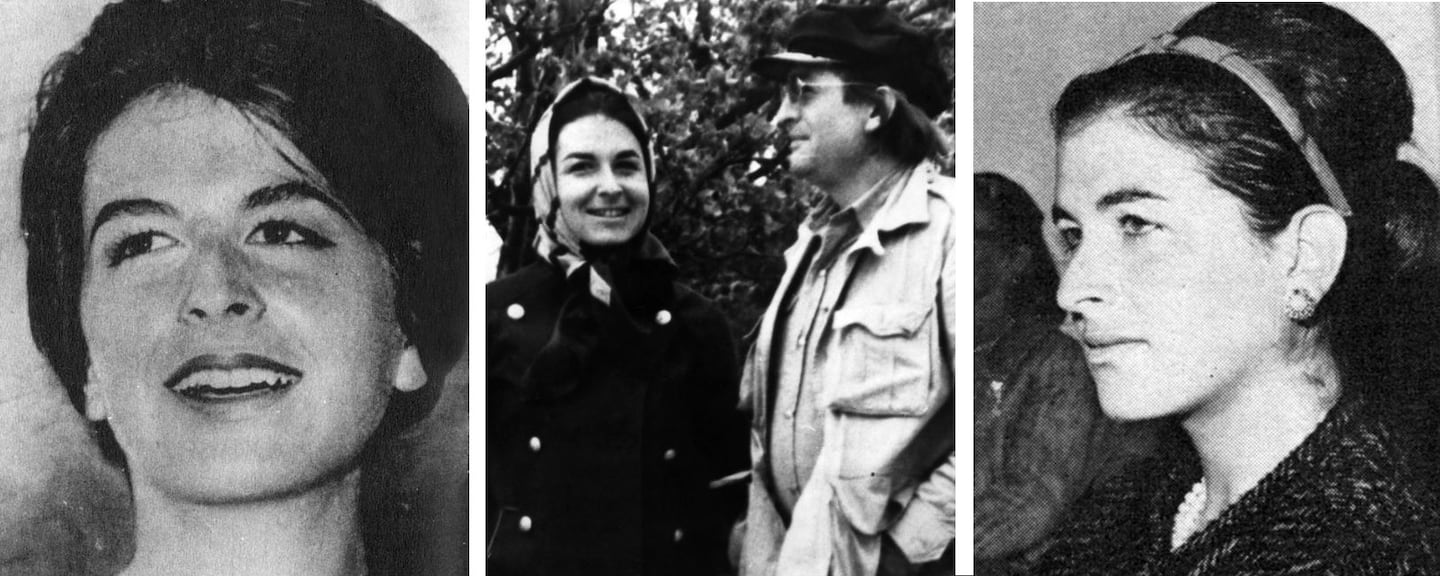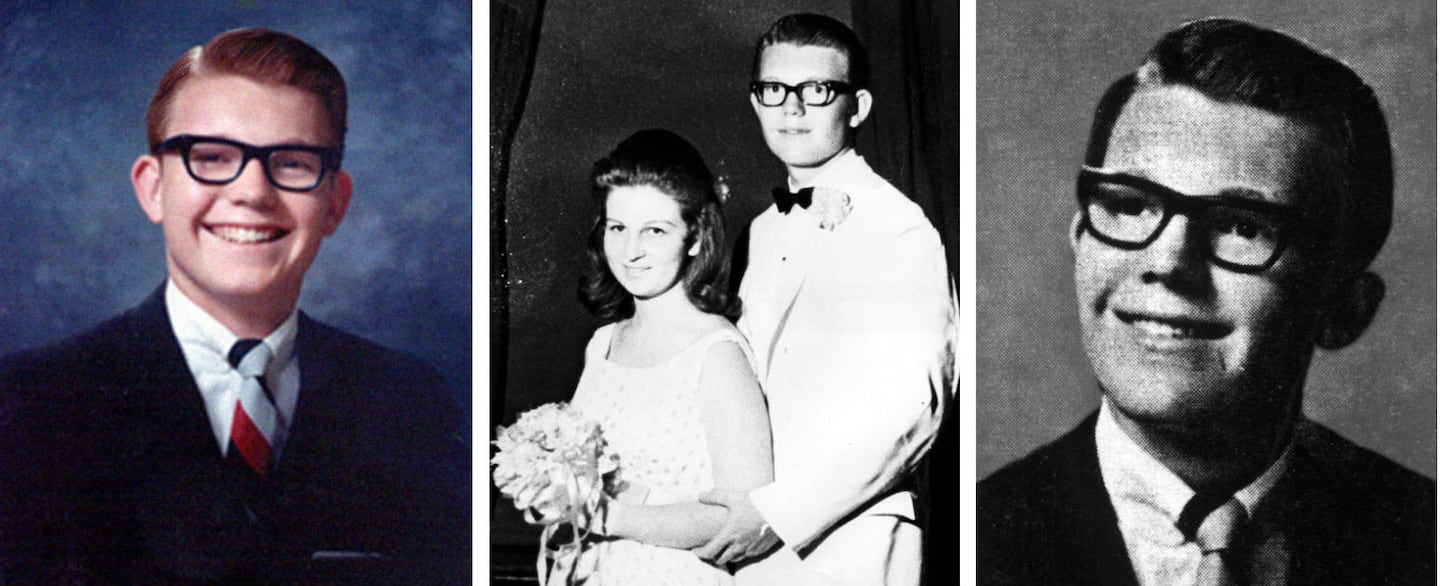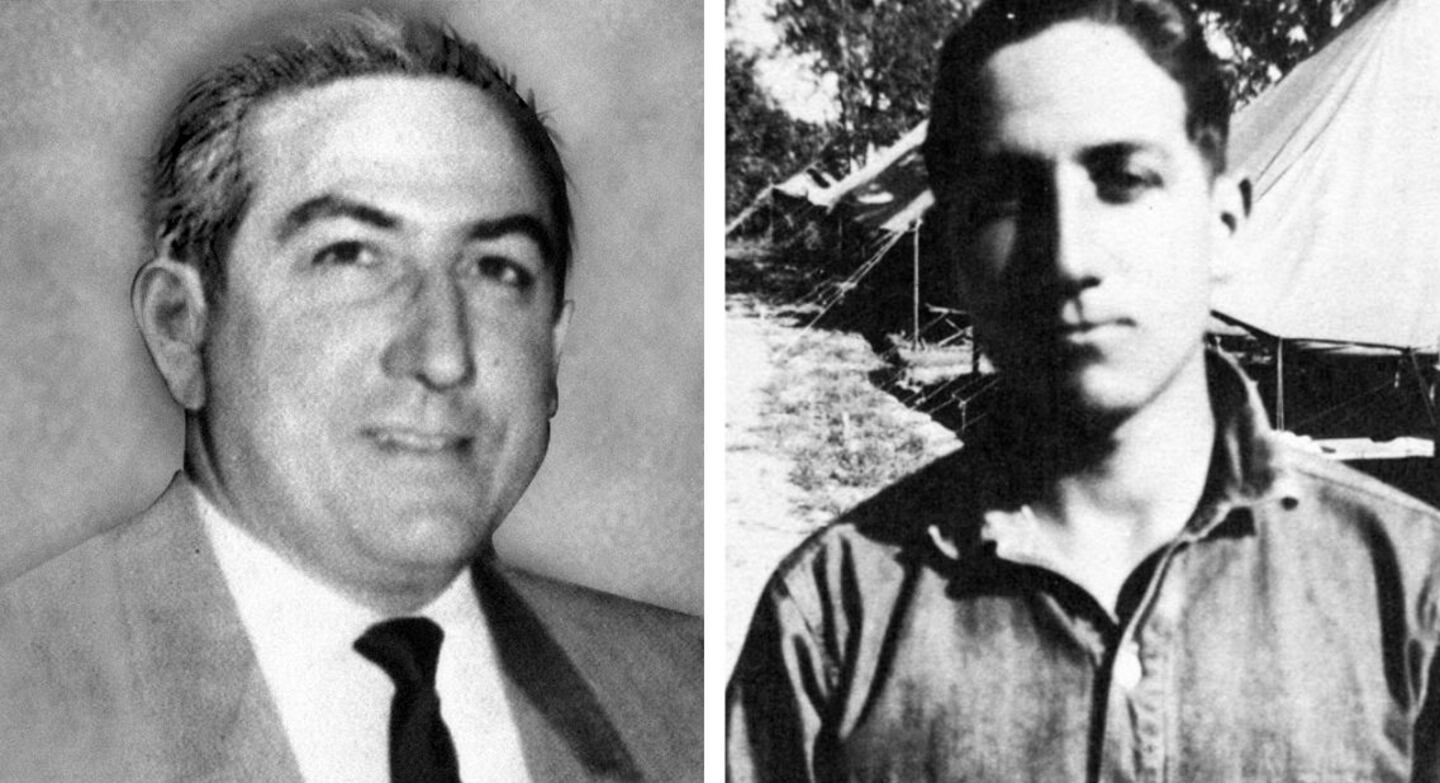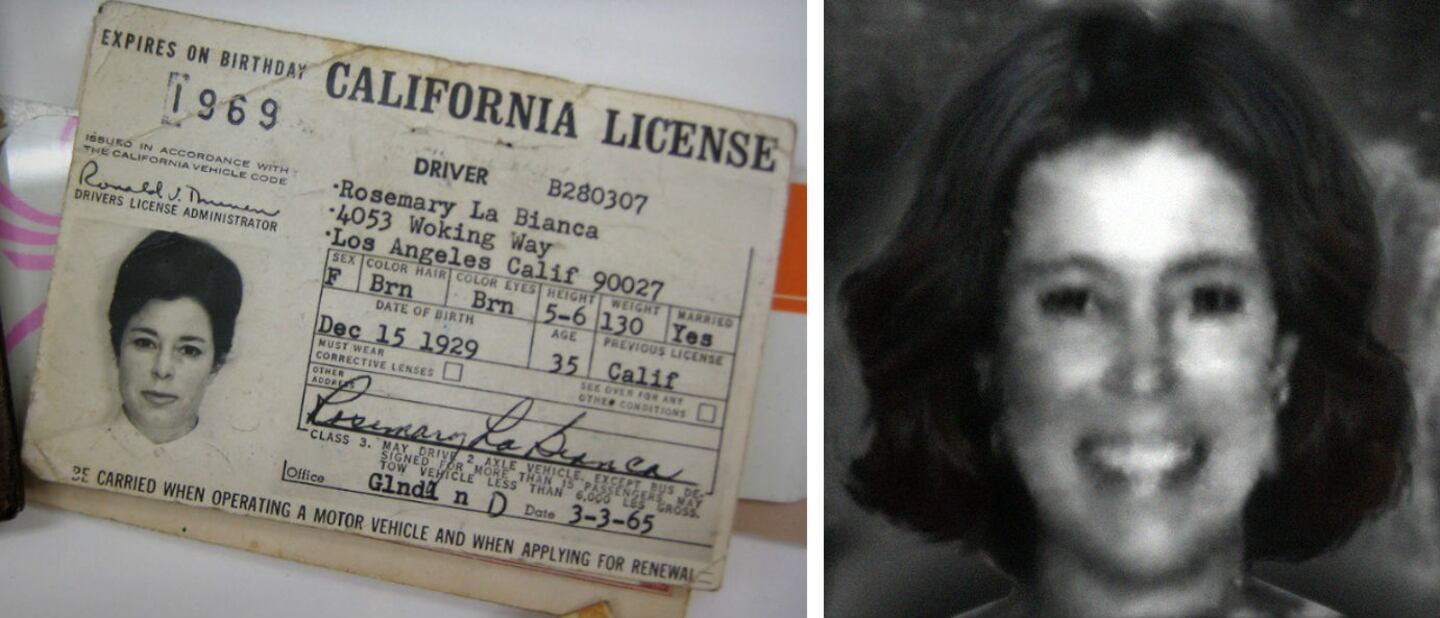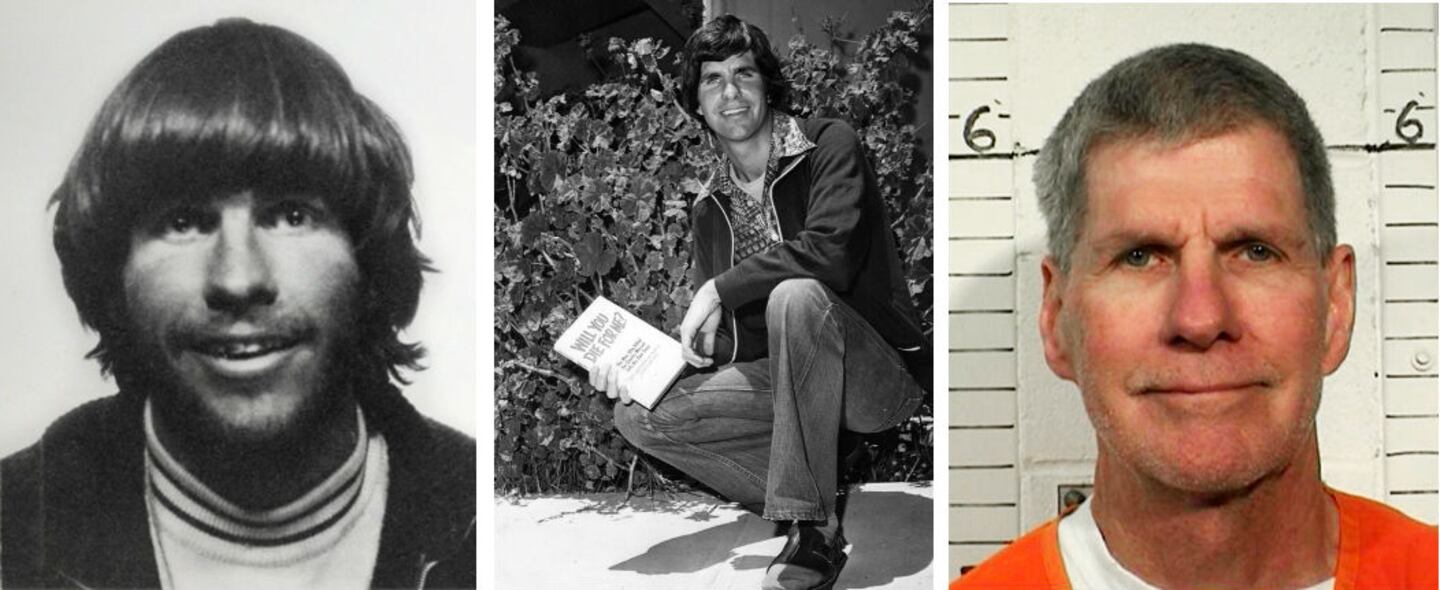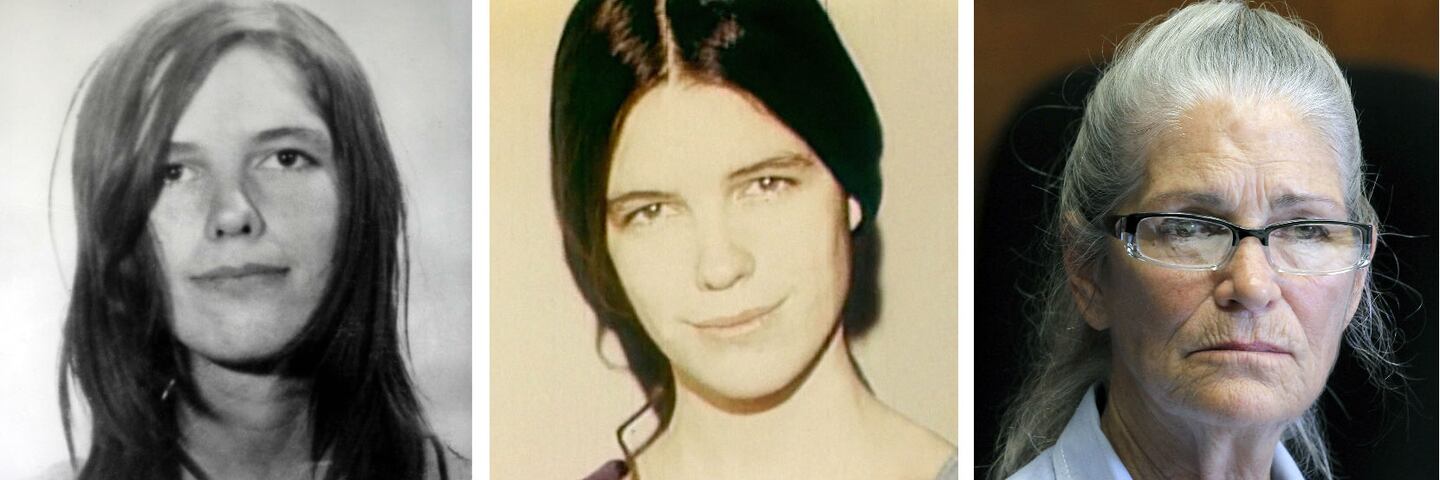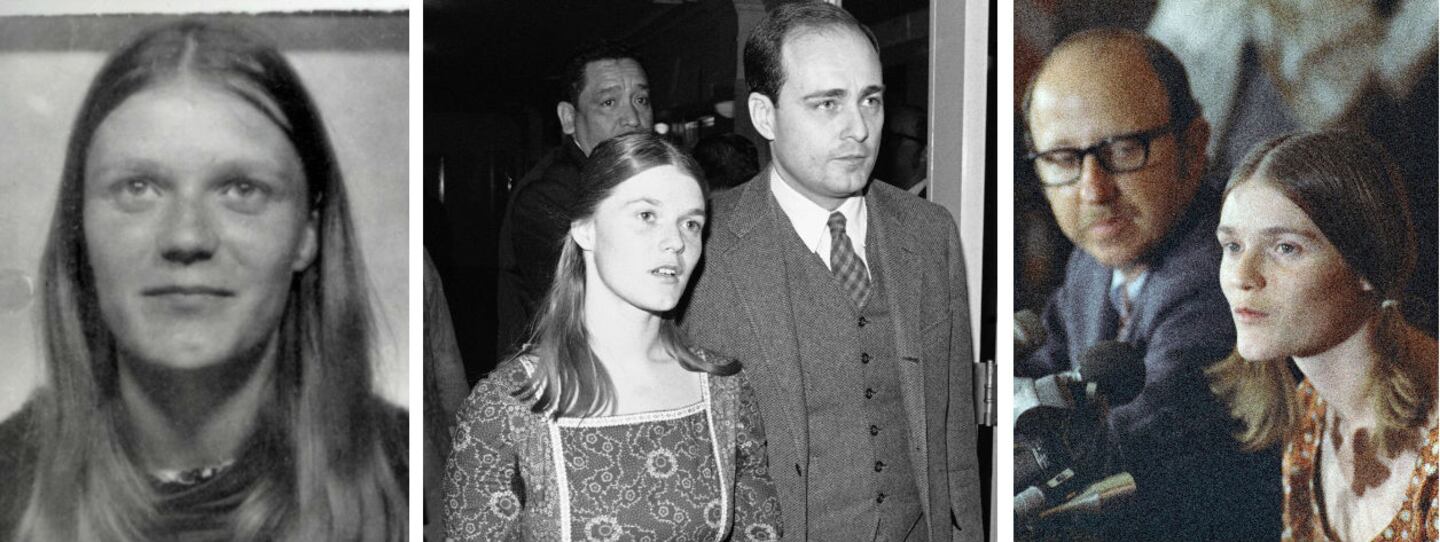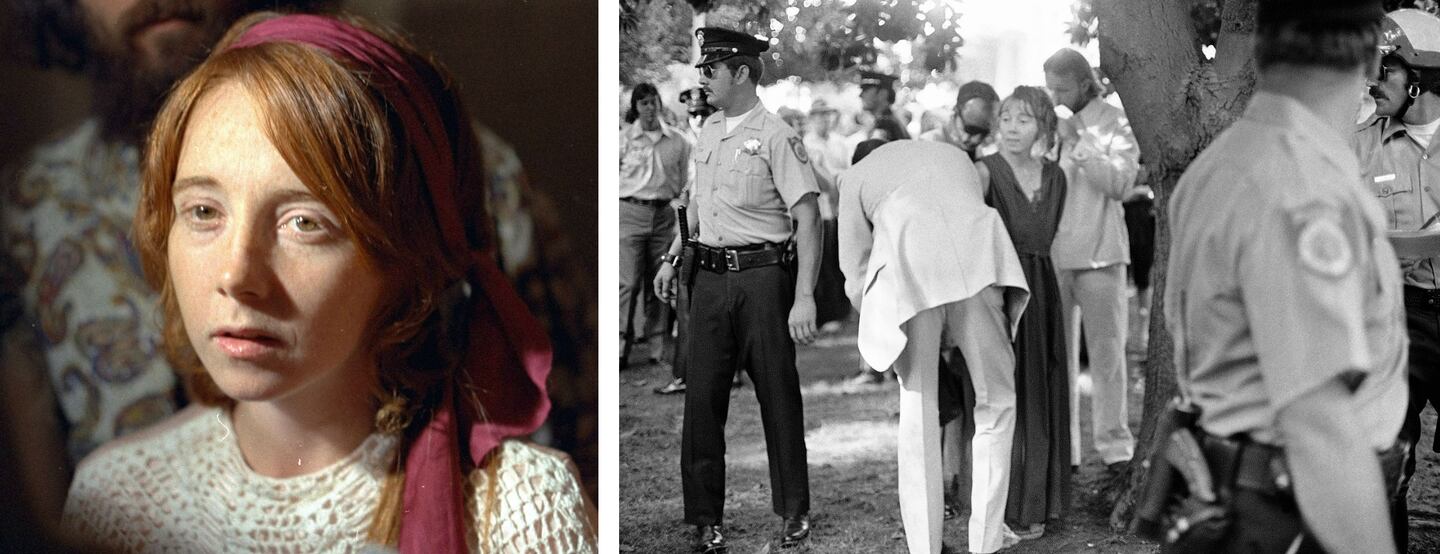LOS ANGELES — “It would be nice if it would just go away. But it’s the case that never goes away.”
Those words, spoken to KTLA in Los Angeles by retired prosecutor Stephen Kay, sum up his feelings on the Manson family killings, one of the most notorious mass murder cases in U.S. history. Kay, now 76, served as second chair in the prosecution of cult leader Charles Manson and members of his "family."
Early on the morning of Aug. 9, 1969, several of Manson’s followers brutally killed five people on an estate in California’s Benedict Canyon.
The next night, Manson sent his followers to the Los Feliz neighborhood of L.A., where they beat and stabbed to death a grocery store chain owner and his wife.
>> Related story: Manson family murders: Two nights of brutality that terrorized 1969 Los Angeles
Kay told KTLA he thinks the killers who are still alive should never be released.
“The crime was simply too heinous,” Kay said.
The crimes set the city on edge for months, in part because of the big names involved in the case. The most prominent of those names was probably that of actress Sharon Tate, the pregnant wife of acclaimed film director Roman Polanski.
Note: Unless otherwise stated, the following information about the Tate-LaBianca murder victims and the Manson family members responsible for their deaths has been culled from two sources, lead prosecutor Vincent Bugliosi’s book, “Helter Skelter,” and CieloDrive.com, an online clearinghouse of information about the cases.
Warning: The story contains graphic details of the murders ordered by Charles Manson on Aug. 9 and Aug. 10, 1969.
Sharon Tate, 26
Sharon Tate was born in 1943 in Dallas, the daughter of Paul Tate and Gwendolyn Willet.
She grew up as a “military brat,” moving from base to base within the U.S. and Europe. Her mother and father had two more daughters, Debra and Patti.
Tate won her first beauty pageant, Miss Tiny Tot of Dallas, at the age of 6 months. She continued to model and compete in pageants as a teen and, as a high school student, became homecoming queen.
While her father was stationed in California, Sharon would hitchhike to Hollywood, where she started doing commercials. Eventually, she was offered a contract with Filmways, which put her through acting, singing and dancing lessons.
Bit parts followed, usually involving a black wig, in television shows like “Petticoat Junction” and “The Beverly Hillbillies.” She also had roles in “The Americanization of Emily” and “The Sandpiper,” as well as the Dean Martin film, “The Wrecking Crew.”
For that film, Bruce Lee choreographed a fight scene for Tate and fellow actress Nancy Kwan, seen below.
Tate was in an abusive relationship with a French actor, who once put her in a hospital, before meeting celebrity hairstylist Jay Sebring and beginning one of the most significant romantic relationships in her life. She was still involved with Sebring in 1966 when she met acclaimed filmmaker Roman Polanski, who was about a decade older than Tate.
When Polanski directed Tate in a horror movie spoof, “The Fearless Vampire Killers,” the pair began seeing one another and Tate broke off her relationship with Sebring. Sebring and Tate remained close friends, even as she and Polanski wed in January 1968.
Though Polanski’s career was a success, Tate’s never quite took off. Her biggest role was in 1967’s “Valley of the Dolls.”
Watch Tate discuss her role in the movie below.
Her marriage and pregnancy took precedence over her career in the final months of her life, Bugliosi wrote.
The night she died, Tate was stabbed 16 times, killer Susan Atkins’ knife penetrating her heart, lungs and liver. Five of Tate’s wounds, in and of themselves, were fatal.
Her unborn son, named Paul after her father, also died, just two weeks shy of his due date.
Jay Sebring, 35
Jay Sebring was born Thomas John Kummer in 1933 in Alabama, the son of Bernard and Magarette Kummer. He and his three siblings lived a middle class life in a suburb of Detroit, and after high school, he enlisted in the U.S. Navy.
Kummer learned how to cut hair while serving in the Korean War.
After four years in the military, Kummer changed his name to Jay Sebring and moved to California, where he developed a unique way of cutting hair. His style helped birth the men’s hair care industry, and he opened one of the first male hair salons in the U.S.
Sebring’s client list included Paul Newman, Steve McQueen and Warren Beatty and Sebring was hired, at Kirk Douglas’s urging, to design the haircut for the slaves in Douglas’ movie, “Spartacus.”
At the time of his death, he had plans to open several salons under the name of his corporation, Sebring International, and just three months before he was killed, the first salon had opened in San Francisco.
Abigail Folger and Tate’s parents were guests at the grand opening.
Sebring bled to death on the living room floor at 10050 Cielo Drive. He was stabbed seven times and shot once, and according to his autopsy, at least three of the stab wounds, as well as the gunshot wound, would have been fatal on their own.
Abigail Folger, 25
Abigail Folger was born in California in 1943, the daughter of Peter Folger, chair of the Folger Coffee Company, and Inez Mejia.
Folger’s parents divorced when she was young. She grew up in the San Francisco area and was interested in art and music.
A good student in high school and college, Folger, called “Gibby” by her friends, earned a graduate degree in art history from Harvard University.
She worked at a California museum for a while in 1967 before moving to New York, where she worked for a magazine publisher and at a bookstore. It was at a party at the bookstore in 1968 that she met Wojciech Frykowski.
Though Frykowski spoke little English, both he and Folger were fluent in French.
They left New York together a year before their deaths and moved to a rental home in the Hollywood hills. Folger did volunteer social work for the Los Angeles County Welfare Department, working in impoverished neighborhoods.
Disillusioned by the work, she quit the day before she and Frykowski, through whom she met Tate and Polanski, moved into the Cielo Drive home to housesit for the couple while they worked on separate projects in Europe. The couple stayed on after Tate returned to keep her company as her pregnancy progressed.
Folger died of 28 stab wounds to her face and body. It was two days before her 26th birthday.
Wojciech Frykowski, 32
Wojciech Frykowski was born in Poland in 1936. Though he earned a degree in chemistry in school, Frykowski preferred to hang around with filmmakers.
He and Polanski met at a school dance. According to CieloDrive.com, Polanski was working the door and refused to let Frykowski into the dance because he had a reputation for trouble. Polanski later said the pair almost came to blows.
A few weeks later, they ran into one another again in a bar and became friends.
Polanski wrote in his memoirs that Frykowski, who financed and produced an early short film of Polanski’s, was tough on the outside but was “good-natured, soft-hearted to the point of sentimentality and utterly loyal,” the website says.
Frykowski, who married twice and had a son, Bartek, left Poland in 1967 and soon met Folger in New York.
By the time of their deaths, Frykowski’s and Folger’s casual drug use had become more frequent and both had drugs in their systems when they died.
Frykowski fought his killers hard. He was shot twice, struck over the head with a blunt object 13 times and stabbed 51 times.
Steven Parent, 18
Steven Parent, born in California in 1951, lived in the LA suburb of El Monte with his parents and three younger siblings.
He had graduated from Arroyo High School in June and planned to attend Citrus Junior College in Azusa in the fall. He didn’t date seriously but was fascinated by electronics, a hobby that got him into some trouble as a teen.
“Steve was fascinated by electronics and mechanics, and he stole several radios, bringing them home and tearing them apart to understand how they worked,” Parent’s sister, Janet Parent, said, according to CieloDrive.com.
Parent was arrested for petty theft multiple times and spent some time in a youth hall, where authorities who tested him found he was a near-genius when it came to electronics.
He was working two jobs when he died. He had a full-time job delivering parts for a plumbing company during the day and worked as a part-time salesman in a stereo shop at night.
It was Parent’s love of electronics that brought him to Cielo Drive, where he went around 11:45 p.m. Aug. 8 to see if William Garretson, the caretaker of the home, was interested in buying a clock radio from him.
Parent had a defensive slash wound on his palm, which severed tendons and sliced the watch off his wrist. He was also shot four times.
Leno LaBianca, 44
Leno LaBianca was born Pasqulino Antonio LaBianca in Los Angeles in 1925.
His Italian parents immigrated at the beginning of the century to California, where his father, Antonio LaBianca, had a growing grocery business and his mother stayed home to raise Leno and his older sisters.
Leno was a good student and, as a member of the Benjamin Franklin High School track team, earned the nickname “Flash.” When not in school, he worked for his father and frequented movies with his girlfriend, who described him as quiet with a subtle sense of humor.
In 1940, the LaBiancas bought the home at 3301 Waverly Drive where Leno and his second wife would later live -- and die.
Leno studied business administration in college but was inducted into the U.S. Army in 1943. A military policeman, he married his high school sweetheart the following year.
They were separated for 18 months when Leno served in Europe during World War II. When he returned, he and his wife moved into the apartment behind the Waverly Drive house but later bought a small home of their own.
The couple and their children moved back into the Waverly Drive home after Antonio LaBianca died but, unhappy in their marriage, they split up in 1955.
Leno, who took over his father’s company upon his death, met Rosemary Struthers in 1959, and they married in Las Vegas. After living in a Los Feliz home previously owned by Walt Disney, the couple bought the Waverly Drive home from Leno’s mother in November 1968.
Authorities found that Leno had begun to breed racehorses and had amassed more than $230,000 in gambling debts. His wife was wealthy enough to pay those debts, however, so they were not considered a motive in the couple’s murders.
Leno died of multiple stab wounds days after his 44th birthday. His autopsy showed he had been stabbed 12 times with a knife and punctured 14 times by a double-tined carving fork.
A kitchen knife was left jutting from his throat and the word “WAR” had been cut into the flesh of his stomach, from which the carving fork protruded.
Six of his 26 wounds would have been fatal on their own.
Rosemary LaBianca, 38
Rosemary LaBianca’s early life is somewhat of a mystery.
She is believed to have been born in 1929 in Mexico, and her parents, who were reportedly Americans, either abandoned her or died. She grew up in an Arizona orphanage until she was adopted at the age of 12 by a California family by the name of Harmon.
She met her first husband, Frank Struthers, in the late 1940s while working as a carhop at a drive-in. Rosemary gave birth to two children during her first marriage, which ended in divorce in 1958.
She met Leno LaBianca the following year while working as a waitress at the Los Feliz Inn.
Rosemary had her own business ambitions separate from her husband’s grocery business. Always known for her fashion sense, she converted a Ford truck into a mobile dress shop.
The business grew until she opened a permanent dress shop and gift boutique, and by making smart investments, she soon found herself to be a millionaire.
In the months just before the killings, Rosemary had the uneasy feeling that someone was going into their home while they were gone. Items would be moved around and the family’s dogs would be outside when she, her usband and her children had left them inside.
Rosemary was also particularly unnerved by the Tate murders. The proprietor of a newsstand who saw the couple in the early morning hours of Aug. 10, when they stopped by for a paper, told authorities the couple talked about the killings.
Hours later, Rosemary died of multiple stab wounds. She was stabbed 41 times, many of those wounds inflicted after she was already dead.
Six of the stab wounds were fatal in and of themselves.
The ‘family’ members involved

Charles Manson, 34
Charles Milles Manson was born in Cincinnati, Ohio, as “No Name” Maddox after his mother, 16-year-old runaway Kathleen Maddox, didn’t give hospital officials a name for his birth certificate.
Manson would later take the last name of William Manson, a man his mother briefly married.
Manson’s mother was convicted of a strong-arm robbery when he was 5 years old, and when she went to prison, her young son bounced from family member to family member.
“He went from living with strict religious grandparents to an uncle that thought he was a sissy and dressed him in girl’s clothes for the first day of school,” according to Manson’s biography on CieloDrive.com. “Charlie also had more rebellious influences. He lived with an uncle that one day blew himself up in his moonshine still because the law was going to take his land.”
Manson was reunited with his mother upon her release from prison, but the reunion was brief. The boy ended up a ward of the state after Maddox’s boyfriend said he didn’t want the child around.
The young Manson ran away several times from boys’ homes, including Boys Town, and stole cars and committed armed robberies. He ended up in the Indiana School for Boys, where he later said he was repeatedly sexually assaulted.
Stealing another car and heading toward California, he was caught in Utah and spent time in federal facilities because he’d taken the stolen car across state lines.
Manson married Rosalie Willis, 17, in 1955, when he was 20. His arrests continued through their brief marriage, which resulted in the birth of a son, Charles Manson Jr.
When Willis left, Manson never saw her or his son again. According to Newsweek, Charles Manson Jr. shot and killed himself in 1993.
Manson was in and out of prison his entire adult life prior to 1969, for crimes ranging from theft and cashing stolen checks to soliciting prostitution. His second wife, a woman named Leona, gave birth to a second son, Charles Luther Manson, but served him with divorce papers while he was imprisoned in Washington state.
It was in prison that Manson learned to play the guitar. The Beach Boys would later record one of his songs, but Manson was reportedly angered when they changed some lyrics and changed the name from “Cease to Exist” to “Never Learn Not to Love.”
When Manson was paroled in 1967 in California, he begged prison authorities to let him stay in prison, the only way of life he really knew. When he was forced to leave, he went to the Haight-Ashbury District of San Francisco.
It was there that Manson met Mary Brunner, who became the first member of his "family." Brunner would later give birth to Manson's third child, Valentine Michael Manson. That son, who now goes by Michael Brunner, told the Los Angeles Times last month that he thinks his father has been unfairly vilified.
"I would say 95% of the public looks at Charlie as this mass-murdering dog, and it's really, obviously, just not true," Brunner told the Times. "He didn't necessarily kill."
See Michael Brunner's interview with the Times below.
Charles Manson, who denied ordering the murders that took place Aug. 9 and Aug. 10, was ultimately convicted of seven counts of first-degree murder in the Tate-LaBianca murders, two counts of first-degree murder in the separate killings of Gary Hinman and Donald “Shorty” Shea and one count of conspiracy to commit murder. He was initially sentenced to death, but his sentence was commuted to life in prison when California ended the death penalty in 1972.
Manson died in 2017 at the age of 83.
Charles “Tex” Watson, 23
Charles Watson was born in Dallas in 1945.
The youngest of three children, Watson said he had a good childhood and looked up to his parents, who ran a gas station in Copeville, Texas. Watson was an honor roll student and was involved in church activities throughout his childhood.
He was an athlete, playing football and basketball and running track.
Watson said his life changed when he went to college in 1964, at which point his grades slipped, and he became more interested in girls and alcohol. In his senior year, he visited California and went home to Texas just long enough to tell his parents he was moving west.
Watson initially enrolled in college in California but ultimately dropped out, and after a wig shop he and a friend opened failed, he turned to dealing drugs full-time.
Watson met Manson and some of his followers through Dennis Wilson of the Beach Boys, who he met hitchhiking one day. The family were regulars at Wilson’s mansion and, at one point, moved in and would not leave.
Watson visited Wilson’s home multiple times and ended up living there for a summer. He also at that time gave up all his possessions to Manson.
Though Watson left the family for several months, he returned in March 1969, months before the murders that would ultimately put hi in prison.
Watson was convicted of seven counts of first-degree murder and one count conspiracy to commit murder. Like Manson, his death sentence was commuted to life in prison.
Watson, now 73, wrote an autobiography about his time with Manson and the family and founded a prison ministry, Abounding Love Ministries. Though he remains in prison, he was allowed to marry, and he and his wife have three sons and a daughter.
0
Susan Atkins, 21
Susan Atkins, who was born in California in 1948, lost her mother to cancer as a teen. Fighting with her father led Atkins to drop out of school and run away from home.
She went from one low-paying job to another to support herself. While waiting tables at a coffee shop, she fell in with a couple of escaped convicts and went on an armed robbery spree that landed them in jail in Oregon.
Atkins, who received probation in the robberies, returned to San Francisco, where she became a topless dancer. She met Manson around that time.
Watson later said that Atkins was Manson’s biggest supporter and that she enjoyed going on “creepy crawler” missions, in which family members, dressed in black, would break into people’s houses while they were asleep inside.
They would steal, but they would also rearrange items in the houses for the occupants to find when they awoke. It was never determined that the family had broken into the LaBianca house prior to the murders.
Authorities believe the LaBianca home was chosen as a kill site because Manson and other family members had previously attended a party a few doors down and were familiar with the neighborhood.
Atkins, who in 1968 gave birth to a boy she named Zezozecee Zadfrack, was involved in the Tate murders, as well as the killing of music teacher Gary Hinman earlier that summer.
She testified for the prosecution at the family’s trial.
Atkins was convicted of seven counts of first-degree murder and one count of conspiracy to commit murder. She was imprisoned at the California Institute for Women, where she turned to religion and became a model prisoner.
Atkins obtained an associate degree and started her own prison ministry. Like Watson, she also wrote a book about her life and married.
Atkins, who was diagnosed with brain cancer in 2008, requested a “compassionate release,” but was denied. She died in September 2009 at the age of 61.
1
Patricia Krenwinkel, 21
Patricia Krenwinkel was born in Los Angeles in 1947. When her parents divorced 17 years later, Krenwinkel stayed with her father in California while her mother moved to Alabama.
After high school, however, she moved to Alabama, where she attended a Catholic university.
Krenwinkel, who had considered becoming a nun, dropped out of school and went back to California, where she met Manson, Brunner and Lynette “Squeaky” Fromme on the beach. After having sex with Manson, she left with him and the women for San Francisco. She left her car and final paycheck behind to follow Manson, CieloDrive.com says.
Krenwinkel, who was described as quiet but intense, helped care for the children of the women in the family. She is credited with introducing Dennis Wilson, who picked her up hitchhiking, to Manson and the rest of the family.
Krenwinkel was involved in both the Tate and LaBianca murders. According to her own statements, she chased Abigail Folger from the house and continued to stab her to death on the front lawn.
Like the others, she was convicted of seven counts of first-degree murder and one count of conspiracy to commit murder. She was imprisoned at the California Institute for Women, where she has a perfect prison record.
She has received a bachelor’s degree in human services and is active in drug and alcohol treatment support groups. Krenwinkel also teaches fellow inmates how to read.
Leslie Van Houten, 19
Leslie Van Houten, the youngest of the kllers, was born in 1949 in Los Angeles. She grew up with an older brother and two younger siblings adopted from Korea.
When she was a teen, her parents divorced and the children remained with their mother.
At Monrovia High School, Van Houten was twice elected homecoming queen. She also began experimenting with hallucinogenic drugs.
After high school, Van Houten studied to become a legal secretary. She also dabbled in spiritualism and planned to live in a yogic spiritual community.
It was while visiting friends in San Francisco during the summer of 1968 that Van Houten met some of Manson’s followers, who took her to meet him at Spahn Ranch, where the family was staying. She went for a second visit to the ranch a few weeks later and stayed.
“I was absolutely intrigued and mesmerized by Manson and I believed that he was someone very special and extraordinary,” Van Houten would later say, according to CieloDrive.com.
Van Houten, who was involved in the LaBianca slayings, went along that night to prove herself to Manson and Krenwinkel, whom she particularly looked up to.
She helped Watson and Krenwinkel kill Rosemary LaBianca. She also wiped down the home for fingerprints before hitchhiking back to Spahn Ranch with the others.
Van Houten was convicted of two counts of first-degree murder and one count of conspiracy to commit murder. Like the others, her death sentence was commuted in 1972.
Van Houten’s route through the justice system was different from her those of her fellow family members. Her initial conviction was overturned because, during the first trial, her defense attorney, Ronald Hughes, vanished.
Many authorities suspected the family was responsible for Hughes' disappearance, though nothing could ever be proven. According to Los Angeles magazine, Hughes' body was later found in Los Padres National Forest.
A second trial ended in a mistrial, and she was convicted at her third trial in 1978, nearly a decade after the murders.
The magazine reported that she was sentenced to seven years to life in prison.
Like some of her co-defendants, Van Houten has earned a college degree while imprisoned and has been active with Alcoholics Anonymous and Narcotics Anonymous. Like Krenwinkel, she also teaches fellow inmates to read.
Van Houten has been recommended for parole three times in recent years, Los Angeles magazine reported. Each time, California's governor has refused.
"Van Houten has failed to adequately explain to the panel how a model teenager from a privileged southern California family, who had once been a homecoming princess, could have turned into a ruthless killer by age 19," former Gov. Jerry Brown said, according to the publication.
Gov. Gavin Newsom most recently denied her parole in June, noting that her productivity in prison did not outweigh “the negative factors of her involvement in the murders.”
Kay agreed with the denials in his interview with KTLA.
"I admit that she's a model prisoner, and I commend her for that, and I think she should keep doing her good work in prison," Kay said. "But you know, the victims in this case were dead and buried in 1969. They don't get any parole."
Linda Kasabian, 20
Linda Kasabian was born Linda Drouin in 1949 in Maine.
Kasabian, who dropped out of school at 16, had been married twice by the time she was out of her teens. She and her second husband, Robert Kasabian, traveled from one hippie commune to another and, in March 1968, she gave birth to a daughter, Tanya.
Trouble in the marriage caused Linda to take Tanya to New Hampshire, but her husband talked her into reconciling in California. She followed him to Topanga Canyon, where she met Manson family member Catherine Share, aka “Gypsy.”
When her marriage again failed, Kasabian followed Share to Spahn Ranch, where she and her daughter joined the family.
Manson chose Kasabian to drive Watson, Atkins and Krenwinkel to the Tate residence on Cielo Drive the night of the killings because she was the only one with a valid driver’s license.
She did not participate in the slayings but witnessed Watson’s fatal shooting of Steven Parent. She also saw Watson and Krenwinkel kill Abigail Folger and Wojciech Frykowski.
She also drove the next night to the LaBianca house but left with Manson and Atkins before the killings.
Kasabian, who fled the ranch in fear after the murders, later agreed to testify against the killers and received immunity from prosecution.
She has mostly stayed out of the public eye over the past 50 years.
Lynette “Squeaky” Fromme, 20
Lynette Fromme, who was born in Santa Monica in 1948, was one of Manson’s earliest followers, but was not involved in the Tate-LaBianca murders.
A devoted family member, she sat outside the courthouse every day during Manson’s trial and, following his conviction, frequently moved to be closer to whatever prison he was in.
Fromme’s claim to infamy came not from the Manson murders, but from her Sept. 5, 1975, attempt to assassinate President Gerald Ford in Sacramento’s Capitol Park.
At the time, Fromme was dedicated to saving California’s redwood trees. Wrapped in a red robe and carrying a Colt semi-automatic pistol, she approached Ford and drew the weapon.
Secret Service agents immediately took her into custody.
She was convicted of the assassination attempt and sentenced to life in prison, with the possibility of parole.
Fromme never wavered from her loyalty to Manson, escaping from the Alderson Federal Corrections Institute in West Virginia in 1987 after hearing a rumor that Manson had cancer. She was recaptured two days later.
She spent the remainder of her sentence in facilities in Kentucky, Florida and Texas. She was released on parole in August 2009 at the age of 60 and moved to New York state to live with her boyfriend.
Fromme told ABC News in April that she was still in love with Manson.
"I don't think you fall out of love," she told the network. "I feel very honored to have met him, and I know how that sounds to people who think he's the epitome of evil."
Cox Media Group
